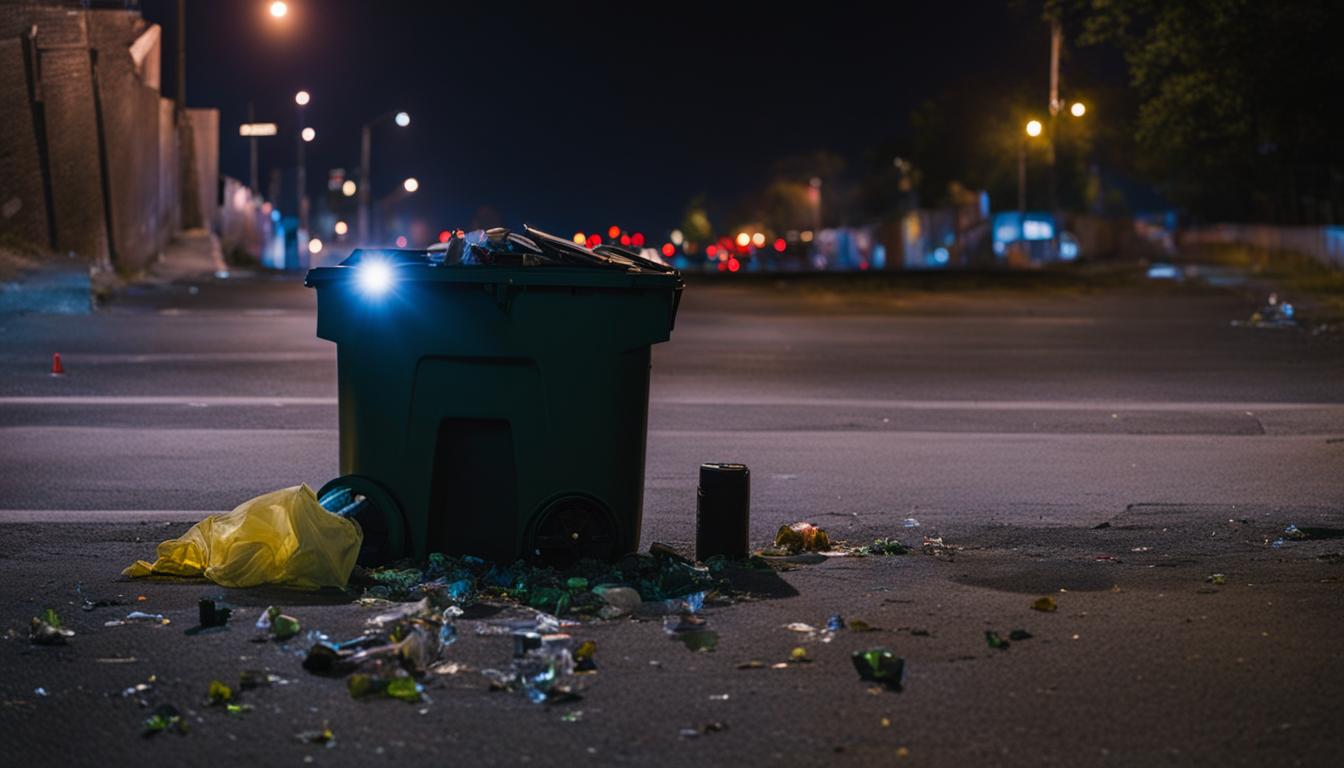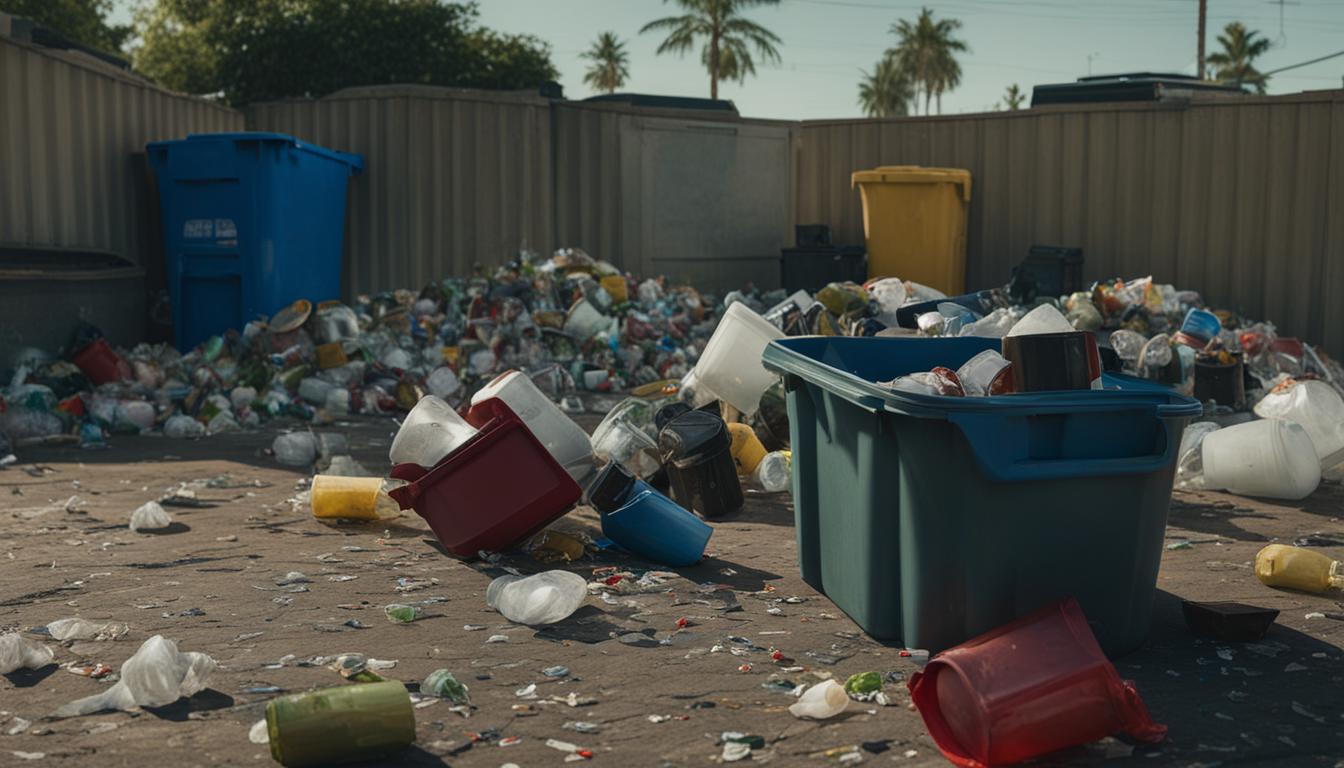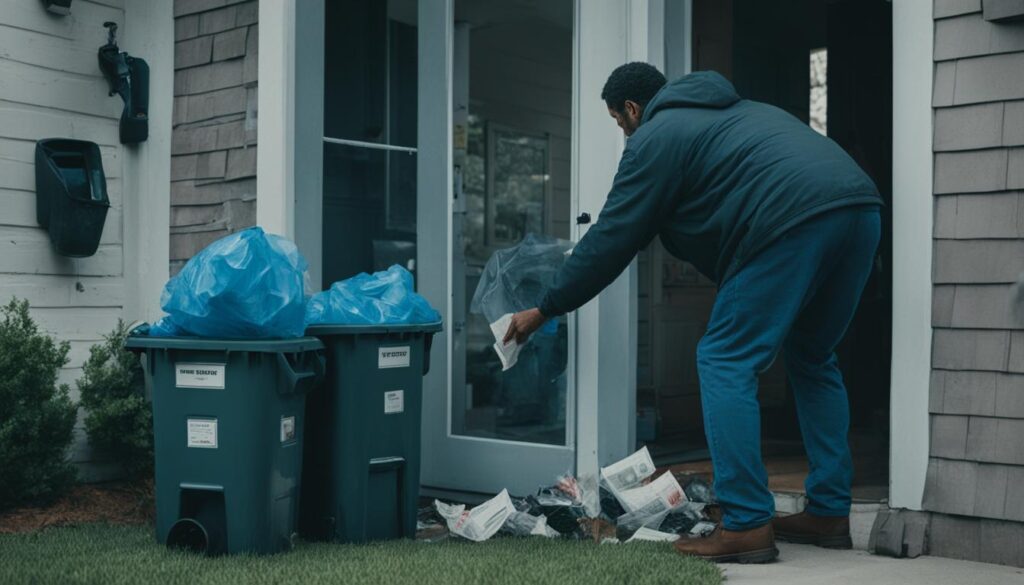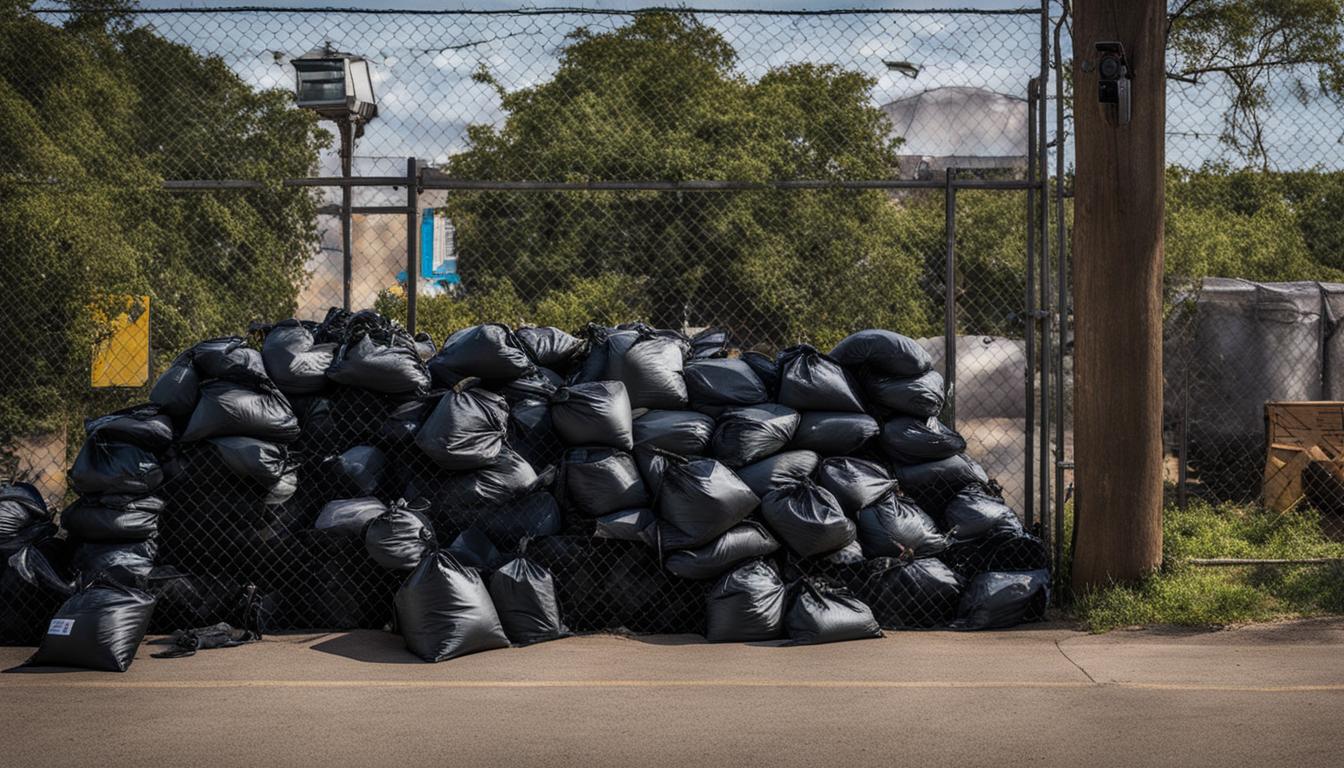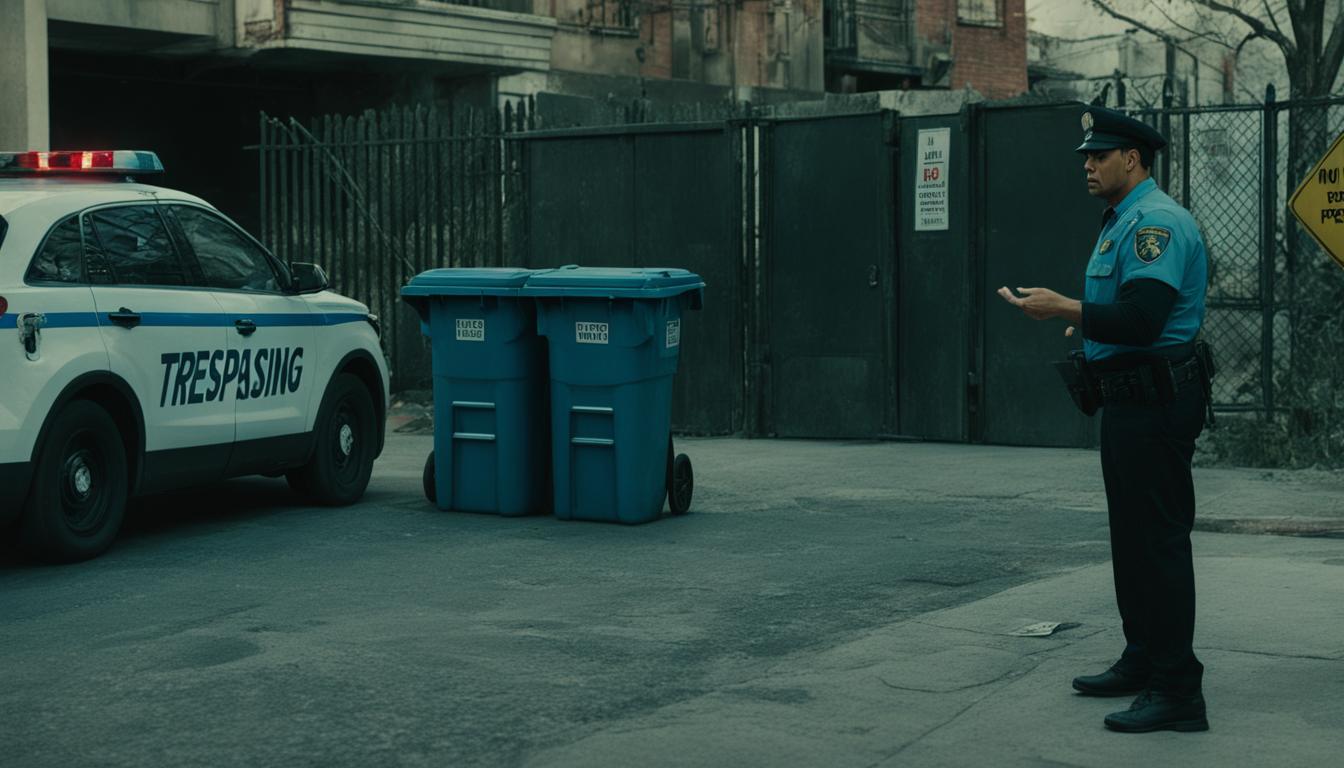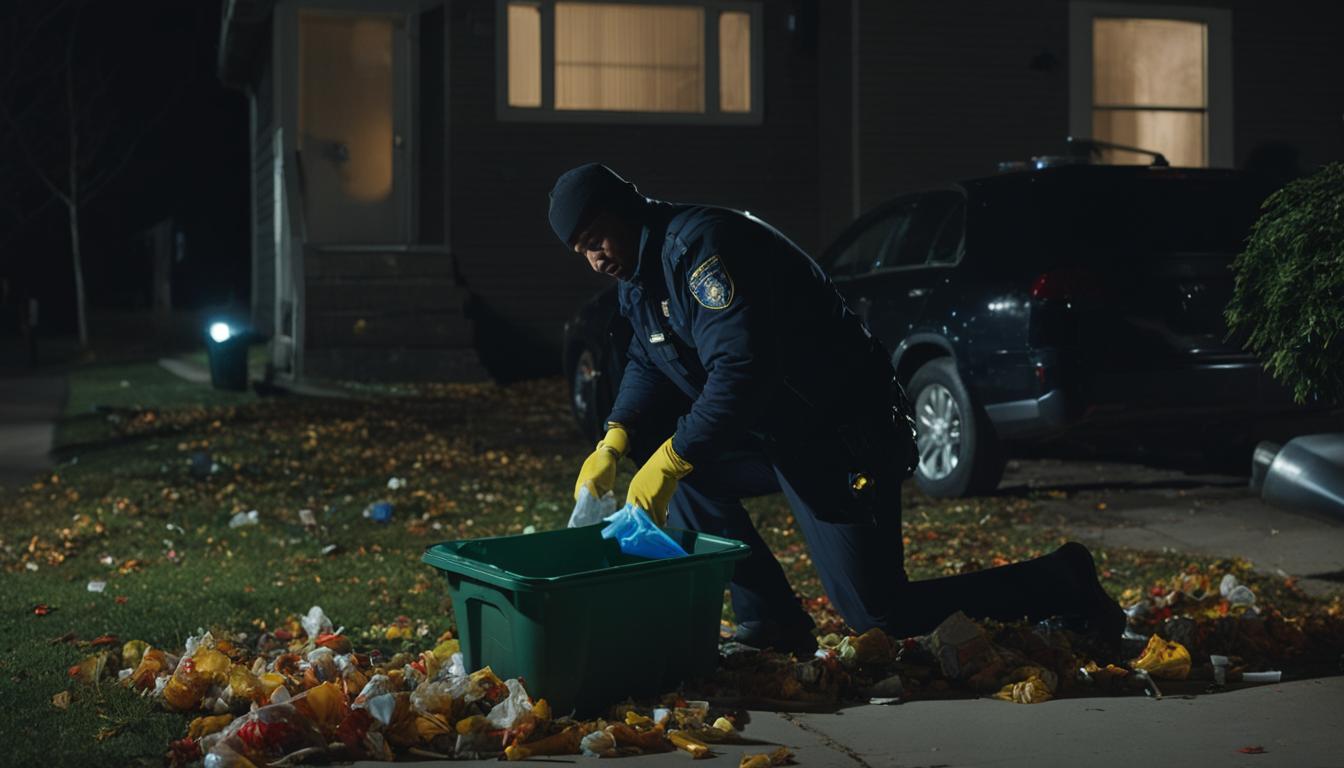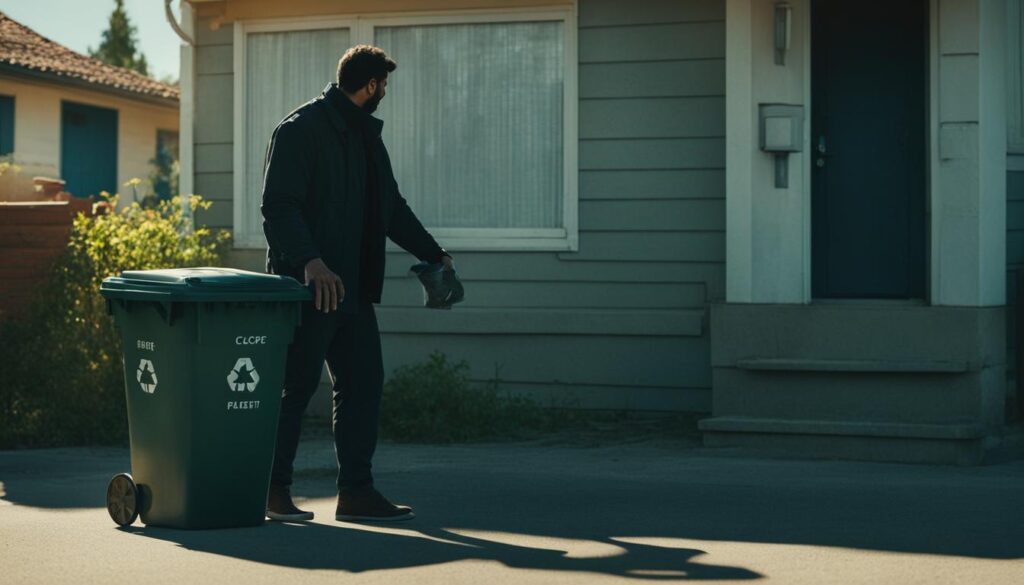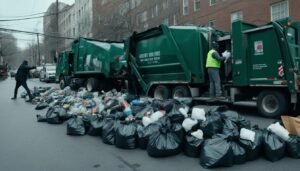Disclosure: This Post Contains Affiliate Links; We earn a commission on purchases.
Trash scavenging in Virginia is a complex legal issue. While recycling is typically off limits, dumpster diving and trash picking are not explicitly illegal in the state. A U.S. Supreme Court decision in 1988 established that garbage left in the ‘outside curtilage’ of a home or property, such as by the curb, is considered public domain and not subject to privacy expectations. However, there are some limitations and restrictions to consider. Virginia does have laws against trespassing and littering, which can apply if someone commits a crime while going through trash or dumps trash on the street or private property. It’s important to be aware of your rights and responsibilities when it comes to trash scavenging in Virginia.
Key Takeaways:
- Trash scavenging, such as dumpster diving and trash picking, is generally legal in Virginia.
- Gabage left outside a home or property is considered public domain and not subject to privacy expectations.
- Laws against trespassing and littering still apply when going through trash.
- Homeowners have rights and can take measures to protect their privacy.
- Be cautious about the personal information you throw away to prevent privacy risks.
The Legality of Trash Scavenging in Virginia
Dumpster diving and trash picking are generally legal in Virginia, as the state does not have specific laws against these activities. The U.S. Supreme Court decision in California v. Greenwood established that garbage left outside a home or property, such as by the curb, is considered public domain and does not have a reasonable expectation of privacy.
However, there are some limitations to consider. Virginia does have laws against trespassing and littering, which can apply if someone goes through trash on private property or dumps trash on the street or private property. It’s important to understand the specific laws and regulations in your area to ensure you are not breaking any local ordinances.
In summary, while trash scavenging is generally legal in Virginia, it’s important to be aware of the boundaries set by trespassing and littering laws. Understanding the specific laws and regulations in your area will help ensure that you stay within the limits of legality when engaging in trash scavenging activities.
| Key Points | Details |
|---|---|
| Dumpster diving and trash picking | Generally legal in Virginia |
| Garbage left outside a home or property | Considered public domain |
| Laws against trespassing and littering | Apply to trash scavenging on private property and improper disposal |
| Know your local laws and regulations | Important to ensure compliance and avoid breaking local ordinances |
By being aware of the legality and limitations of trash scavenging in Virginia, individuals can engage in these activities while respecting the rights of property owners and avoiding potential legal issues.
Rights and Protections for Homeowners
While homeowners may not have a reasonable expectation of privacy for trash left by the curb, they still have specific rights and legal protections. It is illegal for individuals to go through a homeowner’s trash and then discard it on the street or private property. Virginia also enforces laws against trespassing, which means that if someone is verbally warned or encounters a posted sign prohibiting trespassing, they may face a warning or arrest if they persist in rummaging through the trash. Homeowners need to be aware of their rights and take steps to safeguard their privacy, such as shredding sensitive documents before disposal.
Homeowners in Virginia are protected by laws that prohibit others from indiscriminately sifting through their trash and disposing of it improperly. It is crucial for individuals to respect homeowner rights and privacy, understanding that even though the trash may be accessible, it is still private property until it is collected for disposal.
“Homeowners have the right to preserve their privacy and protect their personal information. It is essential to be informed about existing legal protections and exercise caution when disposing of sensitive documents.”
The Importance of Shredding Documents
One practical way for homeowners to protect their privacy is by shredding sensitive documents before discarding them. This includes financial statements, medical records, legal documents, and any paperwork containing personal identifying information. Shredding ensures that such information cannot be easily accessed by those who may go through the trash. By taking this simple precautionary measure, homeowners can greatly reduce the risk of their personal information falling into the wrong hands.
Homeowner Rights and Responsibility
While individuals may have legal protections regarding their trash, it is also important for homeowners to be responsible in their disposal practices. Littering laws still apply, and homeowners should ensure their trash is properly bagged and secured to prevent accidental spills or stray debris. By being mindful and responsible, homeowners can help maintain the cleanliness and safety of their neighborhood.
Homeowner Rights Crossing Paths with the Concept of Trash as Public Domain
One notable aspect to consider is the concept of trash as public domain. While homeowners have rights and legal protections, this concept acknowledges that once trash is placed by the curb for collection, it is often considered public property. Law enforcement, as well as certain individuals or entities, may have the legal authority to search trash without a warrant, as determined by the U.S. Supreme Court decision in California v. Greenwood in 1988.
| Homeowner Rights and Protections | Key Points |
|---|---|
| Protection against others discarding trash on private property | Homeowners have the right to prevent others from going through their trash and leaving it on their property or the street. |
| Laws against trespassing | If someone is warned not to trespass or encounters posted signs prohibiting trespassing, they can face a warning or arrest if they continue to go through the trash. |
| Responsibility to protect personal information | Homeowners should shred sensitive documents before disposal to prevent easy access to personal information. |
Potential Risks and Privacy Concerns
When it comes to privacy, the discarded items in your trash can pose significant risks. Dumpster diving, the act of rummaging through someone’s trash, can provide access to personal information that can be used for nefarious purposes, such as identity theft. Items like empty pizza boxes, mail, bills, credit card statements, and receipts contain valuable insights into a person’s daily life, financial transactions, and personal data.
To illustrate the potential risks of dumpster diving, imagine a scenario where an individual retrieves a discarded credit card statement from your trash. With this information, they could potentially access your credit card details and make unauthorized transactions, leading to financial loss and significant inconvenience.
This concern extends beyond criminals, as even private investigators or individuals with malicious intent can exploit dumpster diving to gain access to sensitive information. It’s important to be cautious about what you throw away, especially items containing personal information, and to take proactive steps to protect your privacy.
Protecting Your Personal Information
To safeguard your personal information and mitigate privacy risks associated with dumpster diving, consider the following measures:
- Shred sensitive documents before disposal: Use a cross-cut shredder or a professional shredding service to securely destroy documents like financial statements, medical records, and any paperwork containing identifying information.
- Securely dispose of electronic devices: When getting rid of old computers, smartphones, or other electronic devices, ensure that you take the necessary steps to wipe all personal data and information. Factory resetting or using specialized software can help prevent unauthorized access to your data.
- Be mindful of what you discard: Before tossing items into the trash, carefully review them for any personal information. Remove or obscure any sensitive details, such as full names, addresses, social security numbers, or financial account numbers, to minimize the risk of identity theft.
- Consider using secure trash bins: Investing in secure trash bins or utilizing locked shredding bins provided by professional disposal services can add an extra layer of protection to your discarded items.
- Monitor your financial accounts regularly: Keep a close eye on your bank statements, credit card bills, and other financial accounts for any suspicious activity. Report any unauthorized transactions or signs of identity theft immediately.
“Dumpster diving may seem like a harmless act, but the potential consequences of privacy breaches and identity theft cannot be underestimated.”
By taking these precautions, you can minimize the privacy risks associated with dumpster diving and help protect your personal information. It’s essential to remain vigilant and be mindful of the potential harm that can arise from the improper disposal of sensitive documents and items. Safeguarding your privacy is a crucial step in ensuring your peace of mind.
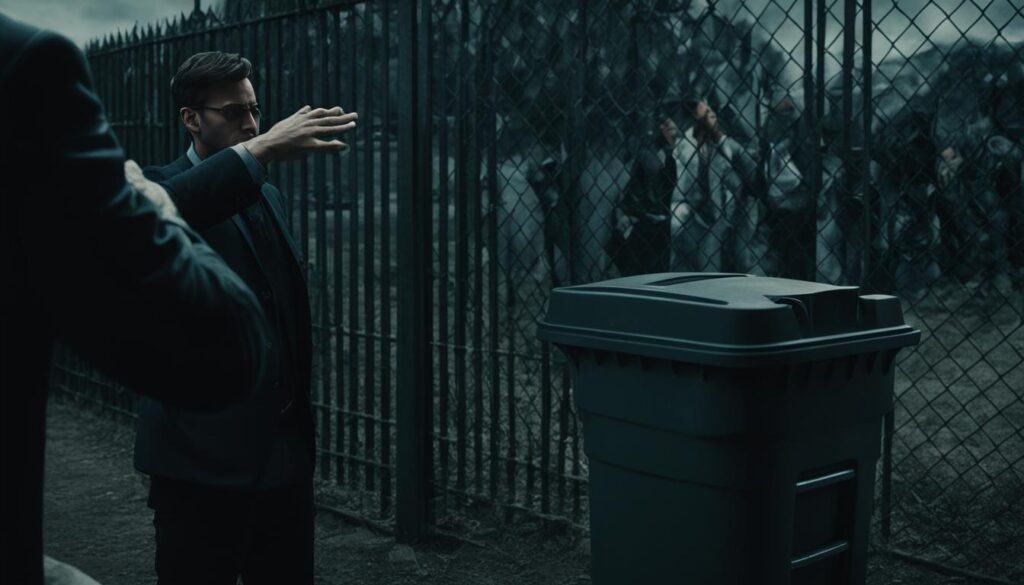
Dumpster Diving Laws in Virginia
While dumpster diving and trash picking are generally legal in Virginia, it’s important to be aware of local ordinances and restrictions that may apply in your area. Although the state does not have specific laws against dumpster diving, some cities or counties may have passed their own ordinances making trash picking illegal or have specific rules for going through trash. It’s essential to check with your local government to understand any potential restrictions or regulations that may limit your dumpster diving activities.
Alternative Methods of Obtaining Discarded Items
If you’re looking to acquire discarded items, there are alternative methods that are legal and accepted. One option is to ask your neighbors for permission to take items they have put out on the curb. Many people are willing to give away unwanted items to those who can make use of them. Online platforms such as Craigslist and freecycle.org also provide opportunities to find free items that people are giving away. These platforms often have curbside alerts or dedicated sections for free items, allowing you to acquire discarded goods without violating any laws.
If you’re interested in exploring these alternative methods, here is a table comparing the features of Craigslist and freecycle.org:
| Craigslist | Freecycle.org |
|---|---|
| Large user base | Community-driven |
| Local listings | Local groups |
| Wide range of item categories | Focus on reuse and recycling |
| Contact directly with sellers | Group email notifications |
Both platforms provide opportunities to connect with individuals who are giving away unwanted items. Craigslist offers a larger user base and a wider range of item categories, while freecycle.org focuses on community-driven recycling and reuse efforts. Depending on your preferences and needs, you can choose the platform that best suits your requirements.
The Concept of Trash as Public Domain
The concept of trash as public domain traces back to a significant U.S. Supreme Court decision in 1988, known as California v. Greenwood. In this case, the court ruled that garbage left outside a home or property does not have a reasonable expectation of privacy and can be searched by the police without a warrant.
This landmark decision was based on the understanding that when trash is placed by the curb for collection, it becomes easily accessible to animals, children, scavengers, and other members of the public. As a result, it is considered part of the public domain and not subject to privacy expectations.
“[Trash] placed on the streets of bags…is readily accessible to animals, children, scavengers, snoops, and other members of the public.”
Therefore, in Virginia, this concept applies, and homeowners should understand that once their trash is placed outside for collection, it may be subject to inspection by law enforcement or other individuals.
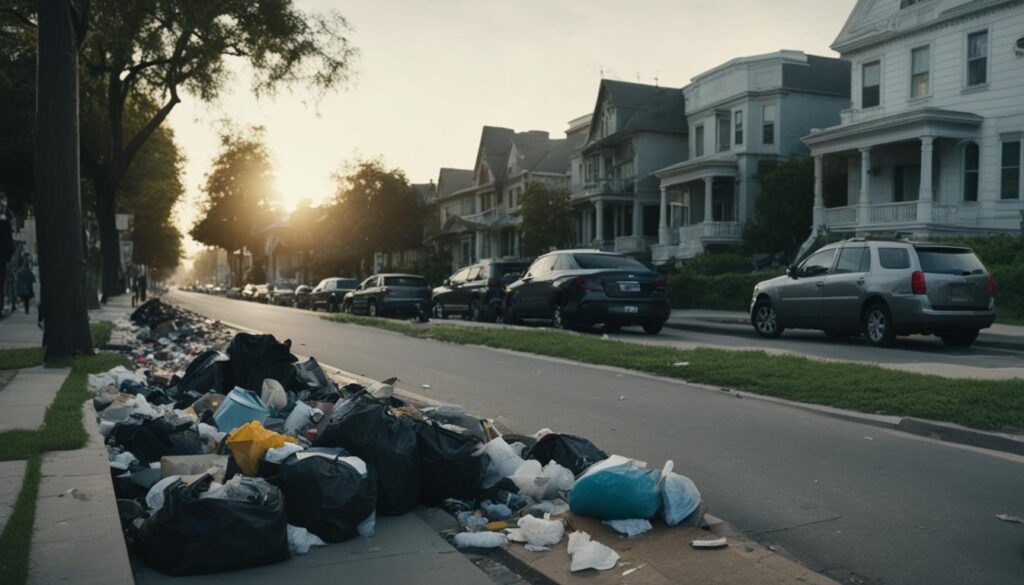
The Implications of the Supreme Court Decision
The Supreme Court decision in California v. Greenwood recognized that the nature of trash left outside a property inherently diminishes any expectation of privacy. It acknowledged that items discarded by individuals may contain information that others could potentially discover.
While the decision focused on the authority of law enforcement to search trash without a warrant, it also opened the door for other individuals, such as scavengers or unauthorized individuals, to access discarded items.
This ruling should serve as a reminder to homeowners to exercise caution when disposing of personal or sensitive materials. By understanding that their trash is accessible to the public, individuals can take proactive steps to safeguard their privacy.
Conclusion
In conclusion, the legality of trash scavenging in Virginia is a complex issue that requires a careful understanding of the law. While dumpster diving and trash picking are generally legal, it is important to be aware of the restrictions and limitations that exist. Laws against trespassing and littering can apply if someone goes through trash on private property or dumps trash on public or private property without permission.
Despite the legal aspects, homeowners still have certain rights and protections. It is illegal for someone to go through trash and then dump it on the street or private property. Additionally, homeowners should take measures to protect their personal information and privacy. Sensible practices such as shredding sensitive documents before disposal can help prevent the misuse of personal information.
Ultimately, understanding that trash left by the curb is considered public domain can help homeowners navigate the legality of trash scavenging. Being aware of local ordinances and regulations is also crucial to ensure compliance with the law. By balancing the rights of scavengers, the responsibilities of homeowners, and the need for privacy, Virginia residents can find a harmonious approach to trash management.
Source Links
- https://residentnews.net/2020/04/02/is-it-legal-for-someone-to-go-through-your-trash/
- https://www.legalmatch.com/law-library/article/is-dumpster-diving-illegal.html
- https://www.local10.com/news/2015/01/06/is-it-legal-to-take-items-out-of-someones-trash/

Subscribe to Our Newsletter

